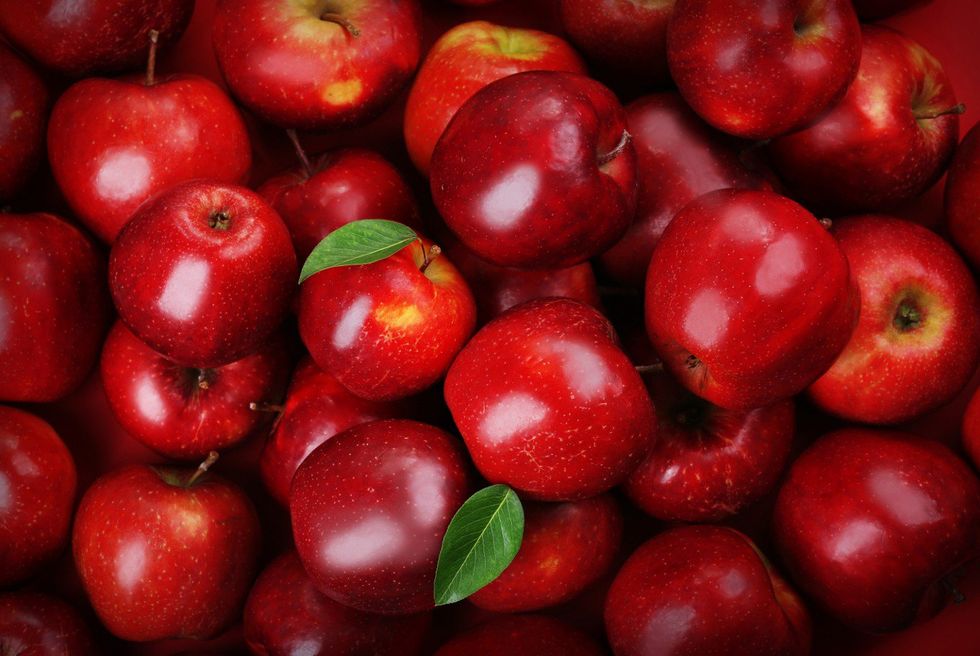Other than the fact that each narrative describes a sin involving fruit, the Genesis creation story in the Bible and Augustine’s Confessions bear some additional commonalities: they both illustrate the human desire for indulgence, highlight the special role of “the group” in sin, and describe a high level of shame post-sin.
In chapter two of the Book of Genesis, God gives Adam clear boundaries about the garden, “you are free to eat from any tree in the garden; but you must not eat from the tree of the knowledge of good and evil, for when you eat from it you will certainly die” (New International Version, Gen. 2:15-17). It is expected that Adam follow these orders. But then something interesting happens as Eve is roaming around the garden:
The woman said to the serpent, ‘We may eat fruit from the trees in the garden, but God did say, ‘You must not eat fruit from the tree that is in the middle of the garden, and you must not touch it, or you will die.’’ ‘You will not certainly die, the serpent said to the woman. ‘For God knows that when you eat from it your eyes will be opened, and you will be like God, knowing good and evil.’ When the woman saw that the fruit of the tree was good for food and pleasing to the eye, and also desirable for gaining wisdom, she took some and ate it. Gen. 3:2-6.
Eve, in a deliberate act against God, eat from the forbidden tree. What is most important is the reason she did: “desirable for gaining wisdom”. They could have any other fruit in the garden, but Eve is willing to give up everything at the Garden to be all-knowing like God. What makes this more interesting is the fact that Augustine does the same thing with his pears, “For I stole that, of which I had enough, and much better. Nor cared I to enjoy what I stole, but joyed in the theft and sin itself” (Book II). Augustine literally says he has better fruit than the pears he is stealing. Like Eve, he could have any fruit he wants, and like Eve, Augustine is indulging in theft for the sake of theft—no other reason.
Another similarity in these narratives is the role trust and camaraderie play. In the Bible, Adam is created from dust and Eve from Adam’s rib, “this is now bone of my bones and flesh of my flesh; she shall be called ‘woman,’ for she was taken out of man…Adam and his wife were both naked, and they felt no shame” (New International Version, Gen. 2:23, 25). Up to this point, per the bible, there is no stronger bond on Earth than that of man and woman, which, the writer claims, is what allows Adam to take part in the eating of the forbidden fruit, “She also gave some to her husband, who was with her, and he ate it” (New International Version, Gen. 3:6). If it were Adam alone, he might have very well eaten that fruit, but it is unlikely. It is the relationship—the trust—Adam has with Eve that creates an environment where this sin can happen. Similarly, in Augustine’s Confessions, Augustine describes his motives for stealing the pears:
I might have done it alone, had the bare commission of the theft sufficed to attain my pleasure; nor needed I have inflamed the itching of my desires by the excitement of accomplices. But since my pleasure was not in those pears, it was in the offence itself, which the company of fellow-sinners occasioned…O friendship too unfriendly! thou incomprehensible inveigler of the soul, thou greediness to do mischief out of mirth and wantonness, thou thirst of others' loss, without lust of my own gain or revenge. Book II.
Although Augustine admits that he did not steal because everyone was doing it, it is worth mentioning that he says the context is what afforded him the opportunity to steal the pears—a context created by “fellow-sinners”: it’s not that they made him do it but he was in the company of other sinners which made him more comfortable to steal—there is a shared trust within the group. In both instances, the sin is committed with other people and not alone.
One final similarity that exists between the texts is the sense of shame after the sin happens. In the Genesis story, the shame is instant and Adam and Eve get Gods wrath almost instantly, “the eyes of both of them were opened, and they realized they were naked; so they sewed fig leaves together and made coverings for themselves” (New International Version, Gen. 3:7). We first see Adam and Eve innocuous in their nakedness, filled with trust for each other and not shameful, and then find them hiding in their nakedness and getting scorned by God. The shame depicted is immense. We also see this level of shamefulness in Augustine’s Confessions, “what fruit had I then (wretched man!) in those things, of the remembrance whereof I am now ashamed? Especially, in that theft which I loved for the theft's sake; and it too was nothing, and therefore the more miserable I, who loved it” (Book II). Other than the fact some level of shame and/or disappointment is required to be describing this incident, in detail, to God, Augustine’s word choice is indicative of his own disgrace: ashamed, miserable. There is a sense that he is embarrassed sharing this with God.
These similarities are interesting. Are you more susceptible to sin in alone or in a group? Why do we feel shame? There are mounds of research rooted in psychology that suggest we are social beings and do things to in groups, and that feeling shame is evolutionary in that it we need it to better interact and empathize with people.


















